#it's about the Meta
Explore tagged Tumblr posts
Text
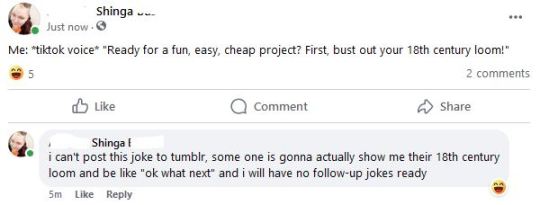
160K notes
·
View notes
Text

Expertise can't help you here.
#dungeon meshi#kabru#laios touden#falin touden#Happy Thistle Thursday once again. Have I been holding on to this comic for several weeks? Sure have!#I forgot how long it takes for Chimera Falin to come into play.#I still really love my 'better drawn' art of her - unfortunately it was several weeks too early for the anime only folks.#Slowly getting the hang of drawing Laios. I don't know why I struggle so much but I am getting...somewhere.#Meta time: God damn I love how the chimera shows off the expertise and gap between Kabru and Laios.#The truth is: they are both *right* and they are both *wrong*.#This creature is a combination of monster and human and they only have the skillset to deal with one of those.#Kabru goes for all the human vitals - but she isn't human.#Laios tries to approach her as a monster and is struck down by the humanity he sees in her.#She is something new that defies what they *both* understand about the world. And that makes her such a perfect antagonist.#The damsel was the dragon all along!#...She is really so cute though. Terrifying! But adorable. I am so excited to see the boom of fanart for her.
46K notes
·
View notes
Text
pet peeve is when a fellow hater conducts their haterism such that they leave the hater community vulnerable to attack. “i think characterizing Character A in x way is boring and annoying” = beautiful, flawless, unimpeachable haterism. no one can tell u that u aren’t allowed to find a certain characterization boring. “it is morally/objectively wrong to characterize Character A in x way” = sloppy, reactionary, overcommitting. you have left our eastern flank open to attack girl what the hell….now my dedicated hater troops are taking fire from YOUR enemies fuckkkkk
#meta haterism moment….#also this post is about haterism within fandom spaces. like above all we must go to war knowing it just isn’t that serious is it….#and neither is this post!#txt
18K notes
·
View notes
Text

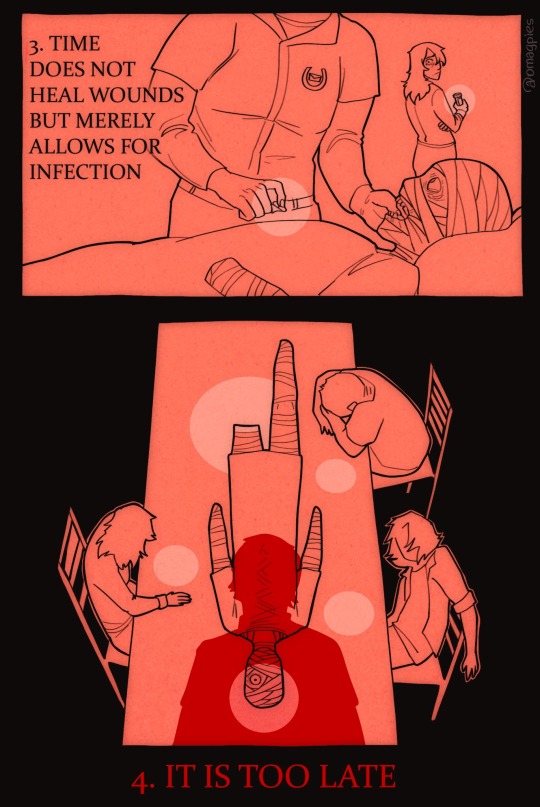
tweet reference under the cut, and the curlya pose is of course ref’s off none other but @joetastic2739 <3

#mouthwashing#curly mouthwashing#anya mouthwashing#jimmy mouthwashing#captain curly#my art#this isn’t some kind of meta about how it’s bad to ship curlya btw#we stan curlya in this house
10K notes
·
View notes
Text
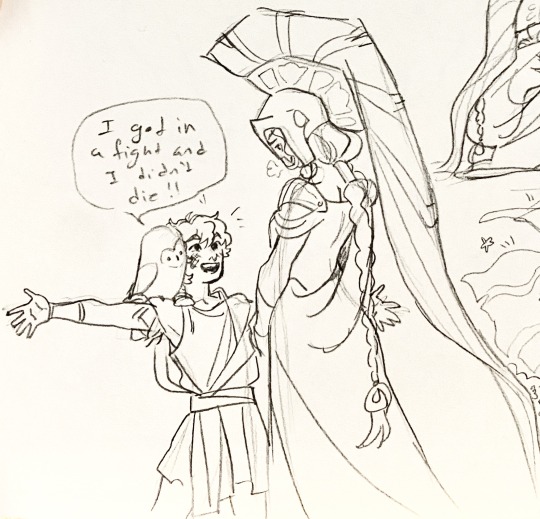
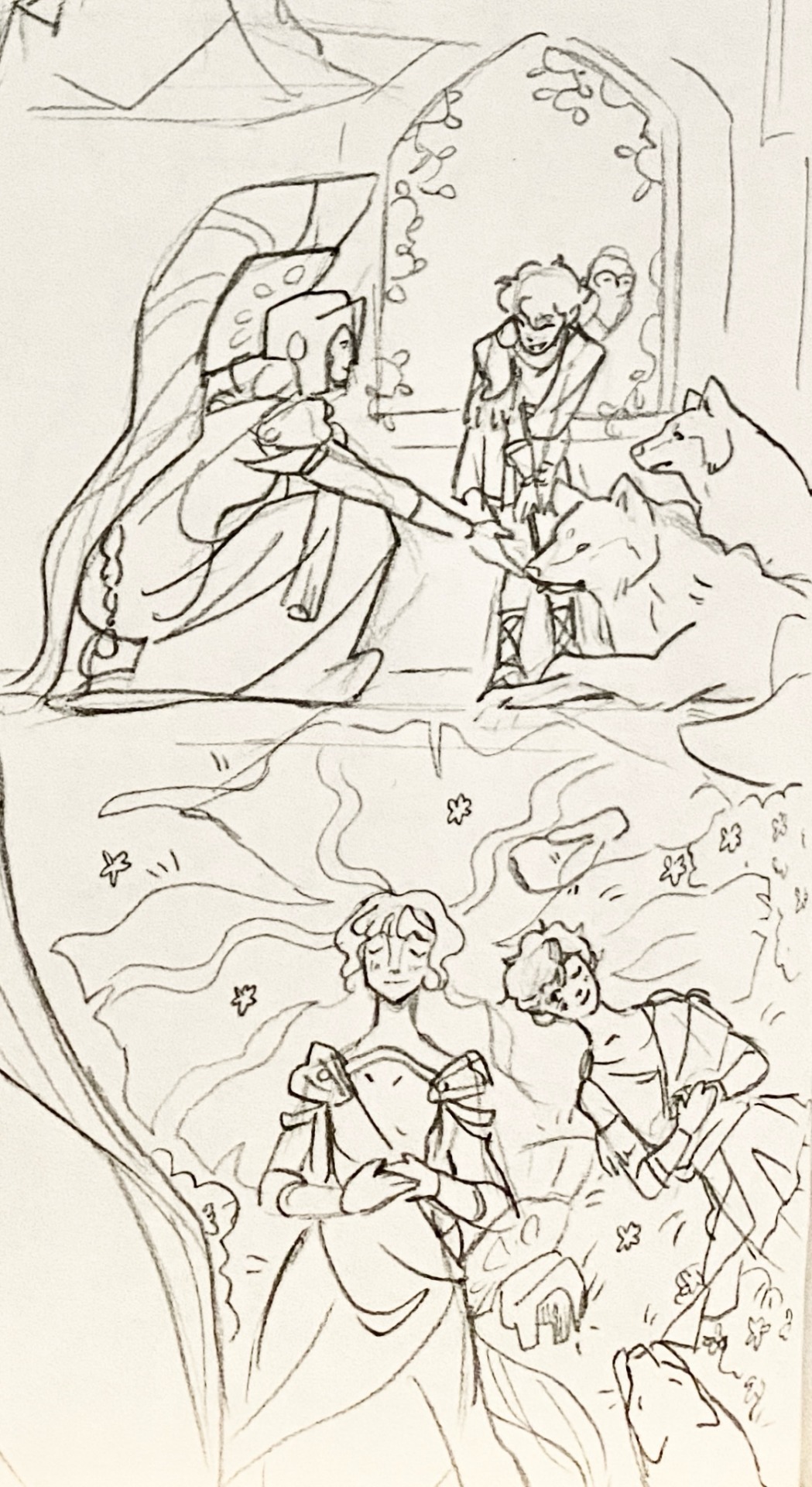
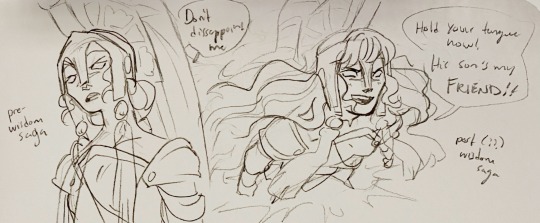
Personally I think that Telemachus permanently and irreversibly changed Athena for the better, more on that at twelve
#I’m sorry for the WORST possible quality pictures and sketches#but they’re fr all I can think about#wisdom saga is where I live now#epic athena#epic telemachus#epic the wisdom saga#epic the musical#epic the musical fanart#sorry to do meta in the tags bug#I think the idea that telemachus’s friendship might have turned Athena into the person she got upset with Odysseus for being#would be delicious#also if you see any inconsistencies in character design or clothes no you didn’t#can’t wait to be able to digital again holy fuck
13K notes
·
View notes
Text
ON the subject of undernegotiated kink in fanfiction. i think we should talk more about how the concept of "not talking about it" is just as much wish fulfillment for some people as "in-depth, therapy-speak conversations where everyone is clear and understood" is for others
like yes, in reality the antidote to shame is open honest conversation with someone who will validate your feelings and wants blah blah blah but SOMETIMES what i want out of my fanfic is characters being understood without having to expose themselves in that way. SOMETIMES it's fun to not dismantle the shame and repression all the way and to instead treat that understanding-despite-not-being-clear as the fantasy
#i fucking HATE talking about my feelings. why would i want to read characters doing it when they could fuck nasty instead.#fandom meta
15K notes
·
View notes
Text

So if I were to take away from this moment something deeper than “man Sevika's a freak”, I'd point out that we've seen the same tactic not long before.

What does this say about Caitlyn? She's fighting dirty. She's fighting like a cornered rat. She's fighting like a Zaunite.
And first of all there's hypocrisy. Caitlyn's been calling these people animals and monsters and whatnot but when placed in an identical situation she responds identically. Case in point: getting so mad at Jinx for terrorizing people out of grief that she goes ahead and starts to terrorize people out of grief. Sevika's expression afterwards is mostly “joke's on you I'm into that” but there's some surprise there too — you wouldn't expect that move from a Piltie.
Then there's desperation. Because she needs revenge; she needs it or she'll never ever forgive herself for what happened. So she'll throw away her morals and her dignity and just do whatever it takes to achieve the goal, whether it means chomping on someone like a feral raccoon or becoming a military dictator… which puts her in the same mindset as Zaunites, all of whom are desperate to survive and a lot of whom could never afford morals and dignity in the first place.
#this was just meant to be a joke about Sevika's utter no-sell compared to that random thug but it kinda. turned into an actual meta#I don't think it's a coincidence that she's been animated with such an “unladylike” expression here#especially contrasted with how cool and controlled she normally is in battle#Arcane S2 spoilers#Arcane#Caitlyn Kiramman
14K notes
·
View notes
Text

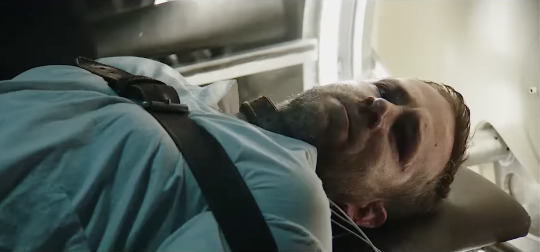
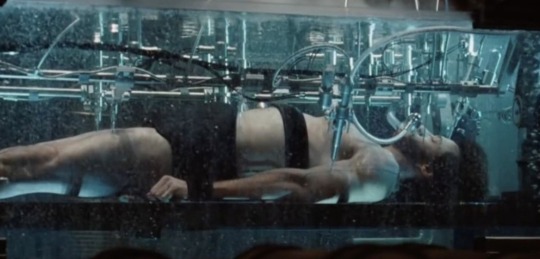
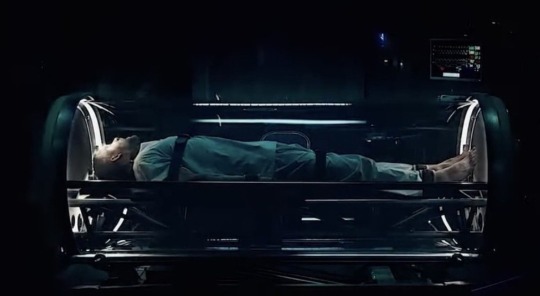
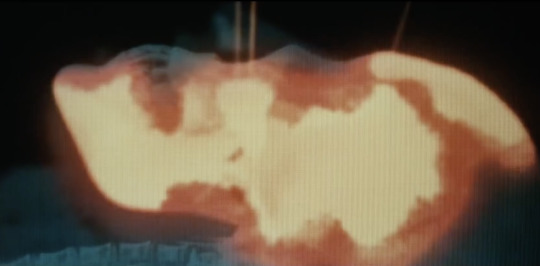

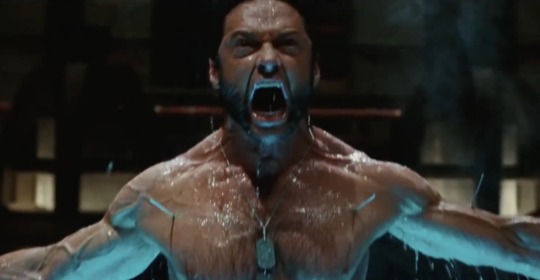


*steeples hands under my chin like i'm sherlock* so you see,
#user: gossippool 😝#gossippool metas#can this be considered meta if i don't say anything#not a day goes by where i do not think about wade's naked fight scene. i am just a girl#i was going to make this a video edit instead to me and the devil because that was the first thing i thought of#but i was lazy! and my editing skills are ass! so#deadpool and wolverine#deadpool & wolverine#deadpool#wade wilson#wolverine#logan howlett#poolverine
16K notes
·
View notes
Text

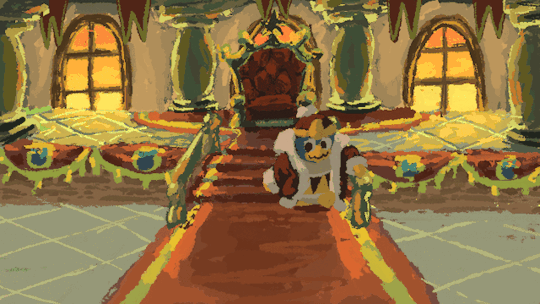
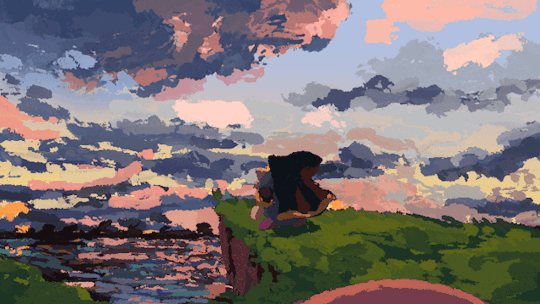
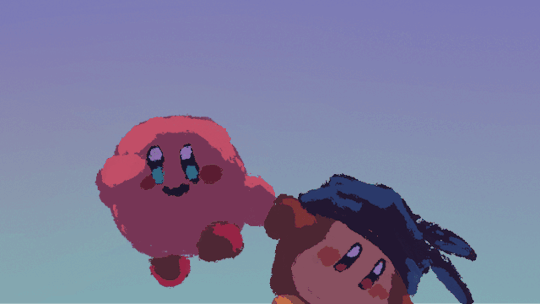
haii👋
#kirby#meta knight#king dedede#bandana dee#bandana waddle dee#animation#fanart#gif#this is a remake of an old animation i didn’t finish - might post about the process for this
17K notes
·
View notes
Text
“In the war film, a soldier can hold his buddy—as long as his buddy is dying on the battlefield. In the western, Butch Cassidy can wash the Sundance Kid’s naked flesh—as long as it is wounded. In the boxing film, a trainer can rub the well-developed torso and sinewy back of his protege—as long as it is bruised. In the crime film, a mob lieutenant can embrace his boss like a lover—as long as he is riddled with bullets.
Violence makes the homo-eroticism of many “male” genres invisible; it is a structural mechanism of plausible deniability.”
–Tarantino’s Incarnational Theology: Reservoir Dogs, Crucifixions, and Spectacular Violence. Kent L. Brintnall.
#Another day another quote that's been rattling around in my head for an age#Which again sums things up better than I ever could#And of course it's not just about the physical deterioration at the end of the story allowing for intimacy#The idea permeates the whole show#Tozer holding Heather as his exposed brain freezes on the deck#Crozier and Hickey reaching a state of psychological intimacy but only through the violence of the lash#You could argue a link between Hickey and Goodsir too through the intimacy and violence inflicted on Irving#Both his killing and his autopsy#The Terror#The Terror AMC#Meta
40K notes
·
View notes
Text
once again begging people to not post their plans to commit crimes/ admit to committing crimes on tumblr
and especially don't post about your friends committing crimes on tumblr please,
youtube
#' I know some of my friends are--' SHUT UP!!!!#you DON'T know anyone undocumented you DIDN'T see anyone shoplifting#you know NOTHING about any political action that wouldn't be printed on a flyer!!#as far as public posting is concerned we all live on Sesame Street only less exciting!#hang yourself if you gotta but do NOT hang your friends and neighbors!#this also goes for Discord Twitter Bluesky Meta and ESPECIALLY Tiktok!#if it needs specifying!#Youtube#Sigh. Someone is Careless On The internet news at 11
3K notes
·
View notes
Text
something insanely meta about jack and tommy chatting about how it all sucked everything sucked and it was a mess and it hurt and no theyd never wanna go back but.. they miss it sometimes. to the way things were and how they felt. sometimes you just wanna go back
#dsmp#insanely meta considering everything thats fucking happened#id never want to do dsmp again but i do miss how it Felt to be In it#to trust the people and care about the story#never again. it sucked. but yeah. sometimes you miss it
6K notes
·
View notes
Text
The batkids encountering distressed children and calling them "sweetheart", subconsciously mimicking how Bruce would and will call them sweetheart when they're distressed, and not even realizing it?? Don't speak to me. I can't.
#I was specifically thinking about dick doing this#and it being particularly emotional bc he's the eldest child. the one who had to step in and be batman for while#the one who's practically like a second parent to his siblings and just like.#smth about it hits hard.#bc dick is very different from bruce but he's the eldest so he's also more similar to bruce than anyone in the family cares to admit#and when dick uses that nickname. for a moment the family just sees bruce#and it's heart wrenchingly beautiful#I'm not convinced I conveyed my thoughts well at all but oh well I tried#dc#dc comics#batman comics#batman#batman meta#bruce wayne#dick grayson#nightwing#dc robin#jason todd#jason todd wayne#red hood#batfamily#batfam#bruce wayne is a good dad#bruce wayne is a good parent#tim drake wayne#tim drake#red robin#damian wayne#damian al ghul#cassandra cain
5K notes
·
View notes
Text
What I liked best about Jinx and Sevika's first post-Silco talk was how well it implies why their grief is so pronounced. Every complaint the two lodged at Silco was an admission at how dependent Silco had become on them, how much he LET himself be dependent. Silco didn't NEED to let Jinx give him his eye medicine, he was perfectly capable of doing so in season one's first act. The same could be said about Sevika, because while it wasn't nearly as extreme as with Jinx, he didn't need to give her so much responsibility. Frankly it's dangerous for a kingpin to give their righthand so much power (it's supposed to be spread around), and everyone noticed, even idiots like Finn.
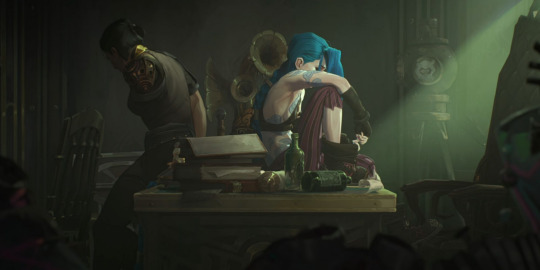
That's why their loss is so pronounced, in all the years they dedicated to Silco, he gave up just as much of himself to them. Silco weakened himself and trusted Sevika and Jinx to make up for it. They filled eachother out, they needed eachother, and without him there's just a hole what they all used to give eachother.
#arcane#arcane meta#silco#sevika#jinx arcane#the way they complained would have been funny if silco wasn't dead but he is so it's more of a wet laugh#it's really an act of extreme faith that silco lets jinx fight his enemies seeing that at their first encounter she ended up killing#majority of her family and killing none of his allies#and i really want to say more about how sevika just throws herself into her fights (and probably the rest of her work)#like sometimes silco didn't even think it was necessary like fighting vi#but sevika just goes for it to her own detriment at times
4K notes
·
View notes
Text
While I’m still a bit bummed that they didn’t go with a more book-aligned POC Fiyero for the Wicked movie, I’ve been thinking (heheh) about how his being white highlights the really interesting foil relationship between him and Glinda (and, in many ways, the audience yourself).
At its core, Wicked is a cautionary tale about propaganda, (literal) scapegoating, and what it means to uphold the status quo. The audience is watching through Glinda’s eyes—it is through her, arguably the most beautifully tragic character of the show, that we learn how lonely life becomes when you forfeit your values in favor of systemic power and likability (“No One Mourns the Wicked” is, in many ways, about HER).
Now, this is where Fiyero’s whiteness can get interesting—if you consider him and Glinda to share roughly equal footing at the beginning in terms of privilege/how much they have to lose (applying our real-world lens of race and power here, where whiteness is the apex), his storyline essentially represents what could have happened if Glinda had made the brave (and arguably wise and loving, if you’re picking up what I’m putting down 👀) choice to go with Elphaba and fight the good fight (this is also why I feel like a queer reading of G&E’s relationship is almost implicit to the story, but I digress).
As the POC/marginalized allegory, Elphaba has much less of a real choice in her curtain-pulled-back turning point. But Fiyero and Glinda—both representing privilege—get to choose. So in Act II, we see the consequences of both the choice to stay (Glinda) and to go (Fiyero). In Fiyero’s case, his ultimate rejection of his own power, privilege, and even beauty leads to immense physical loss—including his own body—but that is then compared to the loss of love, community, and identity that we see Glinda left with by the end. And this brings us to the question that the audience is left grappling with: in an unjust system where loss is inevitable (a.k.a. our own world, as the Wizard himself represents), which of these things are YOU more willing to give up?
It’s important that Glinda is an empathetic character because, in reality, most people are going to be Glindas (obvi this is nuanced among us Elphabas of marginalized identities, but I’d still argue that there’s some level of Glinda in us all)—and it’s important to be rattled by the end of the show when you realize that she is the one who has the sad ending. But it’s also so important that Fiyero is empathetic (which I’m SO glad this movie leaned into)—because he’s ultimately who Glinda—and thus we, as the audience—should have been.
And especially given the state of US politics right now…this is just all more relevant than ever.
#I could go on about how the male and female gender roles/queerness also plays into these dynamics but I NEED to finish my grad apps hrrrr#soon maybe#also don’t get me started on the trump era of it all#WOOF I forgot how much I love this show#THE WORLD CAN FINALLY SEE WHY ITS BEEN ROTTING MY BRAIN FOR 20 YEARS#wicked#wicked meta#wicked spoilers#fiyero tigelaar#glinda upland#fiyeraba#gliyeraba#gelphie
4K notes
·
View notes